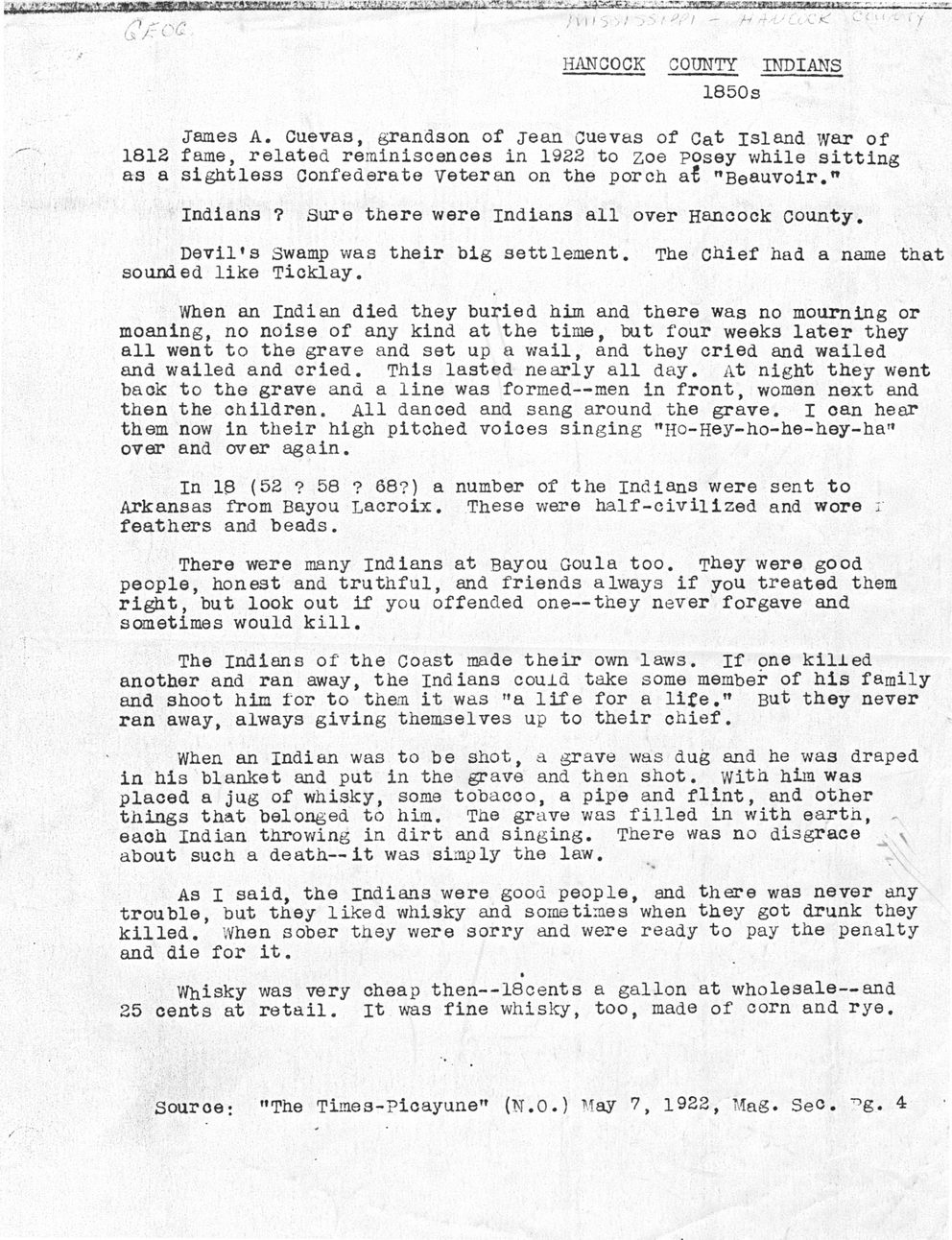This text was obtained via automated optical character recognition.
It has not been edited and may therefore contain several errors.
HANCOCK COUNTY INDIANS 1850s James A. Cuevas, grandson of jean Cuevas of Cat island war of 1812 fame, related reminiscences in 1922 to zoe posey while sitting as a sightless Confederate Veteran on the porch a? "Beauvoir." Indians ? Sure there were Indians all over Hancock County. Devil's Swamp was their big settlement. The Chief had a name that sounded like Ticklay. When an Indian died they buried him and there was no mourning or moaning, no noise of any kind at the time, but four weeks later they all went to the grave and set up a wail, and they cried and wailed and wailed and cried. This lasted nearly all day. At night they went back to the grave and a line was formed?men in front, women next and then the children. All danced and sang around the grave. I oan hear them now in their high pitched voices singing "Ho-Hey-ho-he-hey-ha? over and over again. In 18 (52 ? 58 ? 68?) a number of the Indians were sent to Arkansas from Bayou Lacroix. These were half-civilized and wore r feathers and beads. There were many Indians at Bayou Goula too. They were good people, honest and truthful, and friends always if you treated them right, but look out if you offended one?they never forgave and sometimes would kill. The Indians of the Coast made their own laws. If one killed another and ran away, the Indians could take some member of his family and shoot him lor to them it was ?a life for a life.? But they never ran away, always giving themselves up to their chief. When an Indian was to be shot, a grave was dug and he was draped in his blanket and put in the grave and then shot, with him was placed a jug of whisky, some tobacco, a pipe and flint, and other things that belonged to him. The grave was filled in with earth, eaoh Indian throwing in dirt and singing. There was no disgrace ^ y about such a death?it was simply the law. _ \ As I said, the Indians were good people, and there was never any trouble, but they liked whisky and sometimes when they got drunk they killed. When sober they were sorry and were ready to pay the penalty and die for it. ? Whisky was very cheap then?18cents a gallon at wholesale?and 25 cents at retail. It was fine whisky, too, made of corn and rye. Source; "The Times-Picayune" (N.O.) May 7, 1922, Mag. Sec. ^g. 4

Cuevas 080